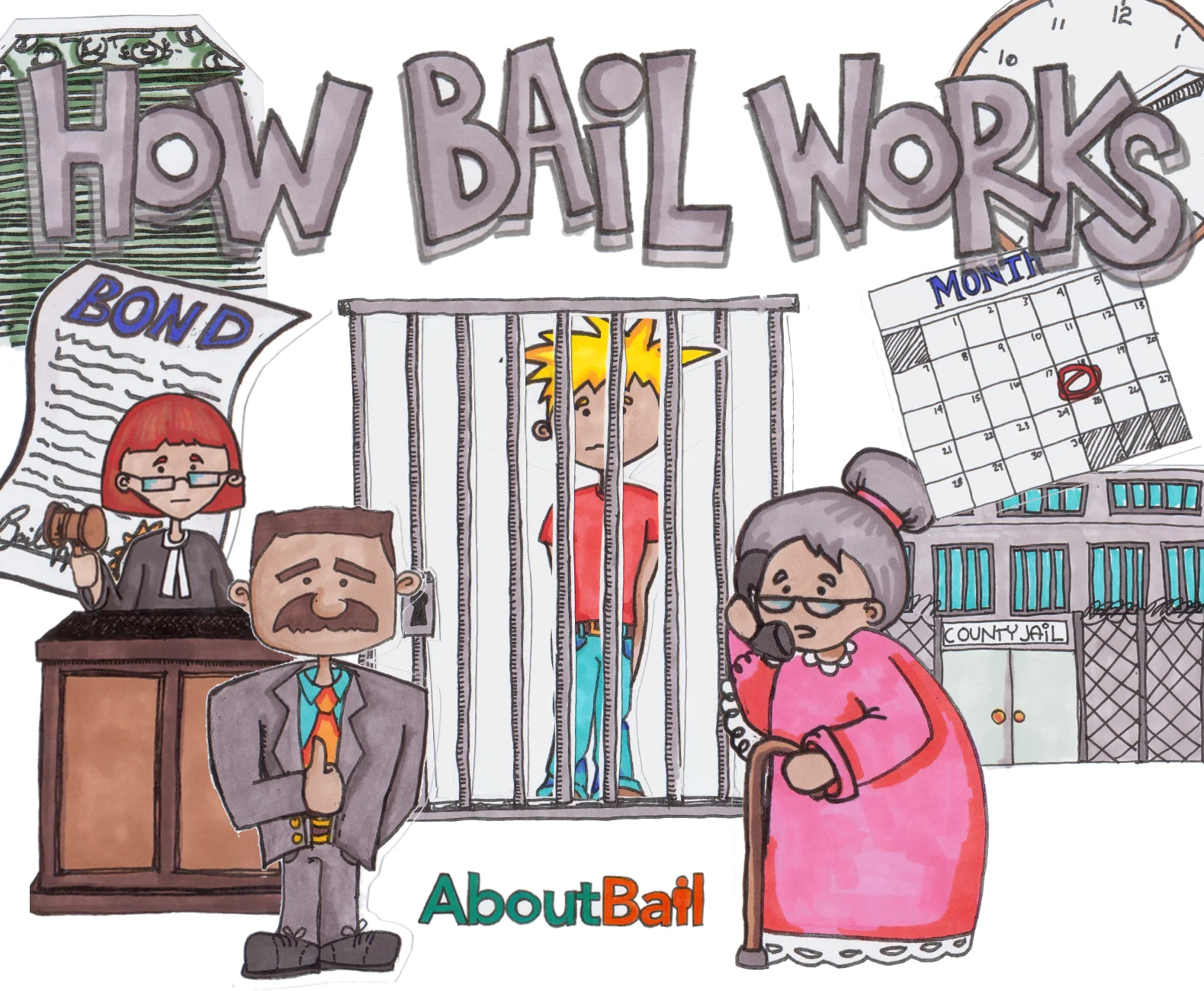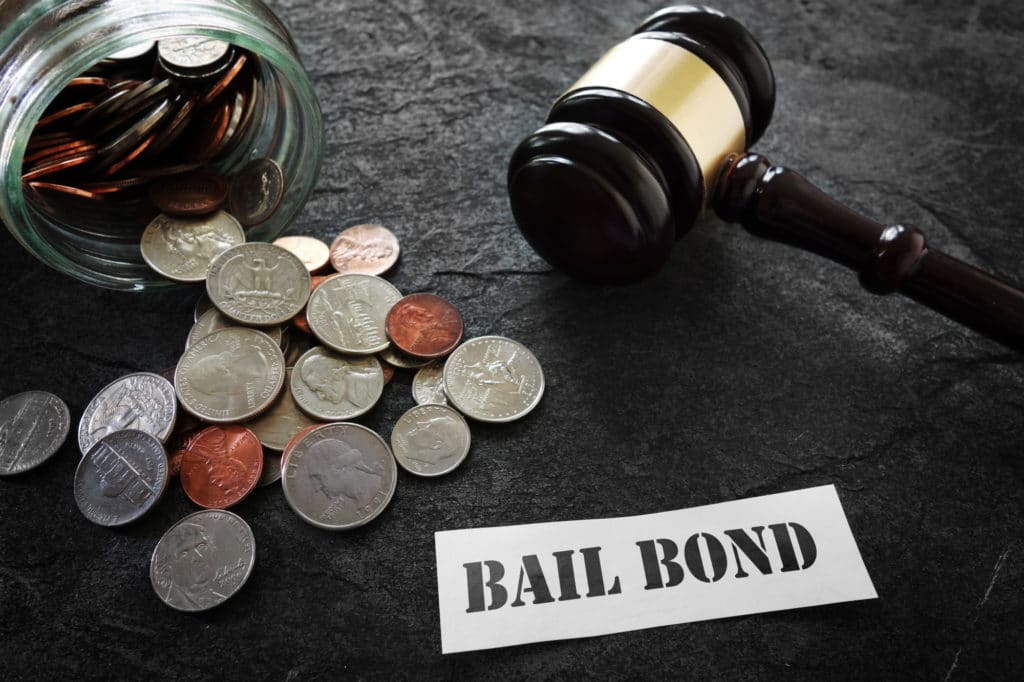Primary Bail Bond Company Dayton Ohio - Your Trusted Companion
Primary Bail Bond Company Dayton Ohio - Your Trusted Companion
Blog Article
Navigating the Legal Labyrinth: Bail Bonds Explained for Beginners
Browsing the complexities of the legal system can commonly feel like going across a daunting maze, specifically when it involves understanding Bail bonds. For novices entering this unfamiliar terrain, comprehending the complexities of Bail bonds is critical in ensuring a smooth and enlightened process. From the fundamentals of just how Bail bonds work to the different kinds offered, each facet plays a crucial function in facilitating the launch of people waiting for trial. As we dig deeper into this subject, clarity will be lost on the bail bond process, the connected costs, and important suggestions for successfully engaging with bondsman.
Basics of Bail Bonds
Bail bonds offer as a monetary warranty that a defendant will certainly show up in court as required. If the person can not manage the complete Bail amount set by the court, a bail bond agent can be employed to offer the needed funds on their behalf.
Essentially, a bail bond is an agreement between the accused, the court, and the bail bond agent. The agent agrees to pay the complete Bail quantity if the accused falls short to show up in court, in exchange for a non-refundable fee generally set at 10% of the total Bail.
Kinds Of Bail Bonds
The most usual kind is a cash bond, where the offender or a loved one pays the full Bail quantity in cash money. An additional alternative is a surety bond, where a bail bondsman pays the Bail on behalf of the accused for a fee, usually around 10% of the overall Bail amount. Understanding these various types of Bail bonds can help people navigate the legal process a lot more efficiently.
Bail Bond Process Discussed
The bail bond process involves a series of lawful steps that promote the release of a defendant from wardship pending their court look. When an individual is detained, a judge establishes a bail amount based upon the extent of the supposed criminal activity and the possibility of the defendant showing up in court. If the defendant can not pay for the complete Bail amount, they can look for the solutions of a bondsman. The offender or their enjoyed ones pay the bondsman a non-refundable cost, normally a percentage of the total Bail quantity, to safeguard a bail bond. The bondsman then uploads the complete Bail amount to the court, ensuring the offender's appearance in any way court procedures.

Recognizing Bail Bond Costs
Upon securing a bail bond through a bail bondsman, people experience a necessary aspect of the legal procedure: the financial responsibilities connected to the bail bond. Bail bond expenses normally include a non-refundable charge, typically around 10% of the total Bail amount set by the court.
In addition to the premium, collateral may be required to protect the bail bond. Collateral can be in the kind of residential or commercial property, useful properties, or a co-signer that assures payment if the offender avoids Bail. The security offers as a back-up strategy for the bail bondsman in situation the offender absconds.
It's essential for individuals looking for Bail bonds to completely understand the expenses involved and the regards to the arrangement prior to proceeding. By being informed about bail bond costs, people can navigate the legal process better and make well-informed decisions.
Tips for Working With Bail Bondsmen

Furthermore, it's important to give exact information regarding the accused and their case. This consists of information such as their complete name, date of birth, the area of their arrest, and the costs they are encountering. bail bondsman dayton ohio. Providing incomplete or inaccurate info can cause hold-ups in the bail bond process

Conclusion
To conclude, understanding the basics of Bail bonds, the various kinds readily available, the procedure involved, and the expenses connected with them is vital for browsing the legal system. By working with Bail bondsmen and following these pointers, people can make certain a smoother and a lot more effective Bail process. It is essential to be informed and educated when managing Bail bonds to avoid any kind of unneeded complications or misconceptions.
Essentially, a bail bond is a contract between the defendant, the court, and the bail bond representative. An additional choice is a guaranty bond, where a bond bondsman pays the Bail on part of the defendant for a cost, generally around 10% of the complete Bail amount. The defendant or their enjoyed ones pay the bail bondsman a non-refundable fee, normally a percent of the complete Bail amount, to protect a bail bond.Upon protecting a bail bond via a bail bondsman, individuals come across an essential element of the legal procedure: the monetary commitments tied to the bail bond. Bail bond prices normally find out here entail a non-refundable charge, normally around 10% of the overall Bail amount set by the court.
Report this page